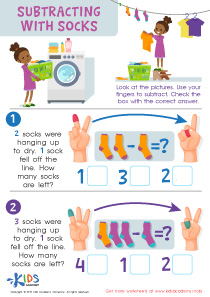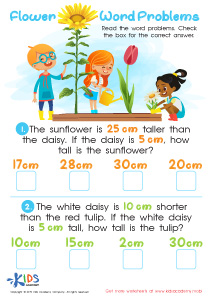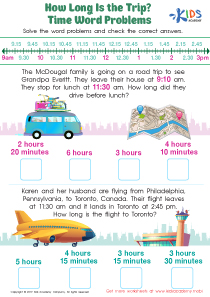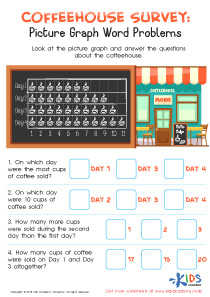Easy Two-step Word Problems Worksheets for Ages 4-7
5 filtered results
-
From - To
Introducing our "Easy Two-step Word Problems Worksheets for Ages 4-7," designed to make learning math enjoyable for young learners. These worksheets provide engaging, age-appropriate problems that foster critical thinking and problem-solving skills. Each worksheet features colorful illustrations and simple scenarios, encouraging children to apply basic math concepts in real-life situations. Ideal for both classroom and at-home learning, these printables help build a strong foundation in addition and subtraction while boosting confidence and academic success. Enhance your child's mathematical journey with our fun, interactive worksheets and watch them excel in no time!
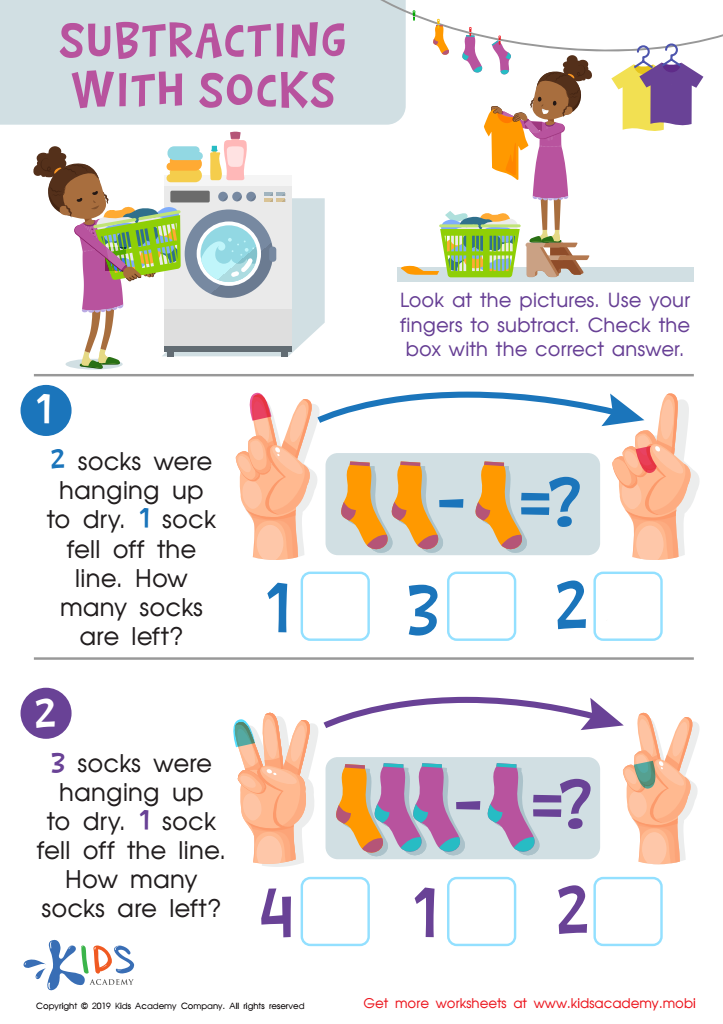

Subtracting Socks Worksheet
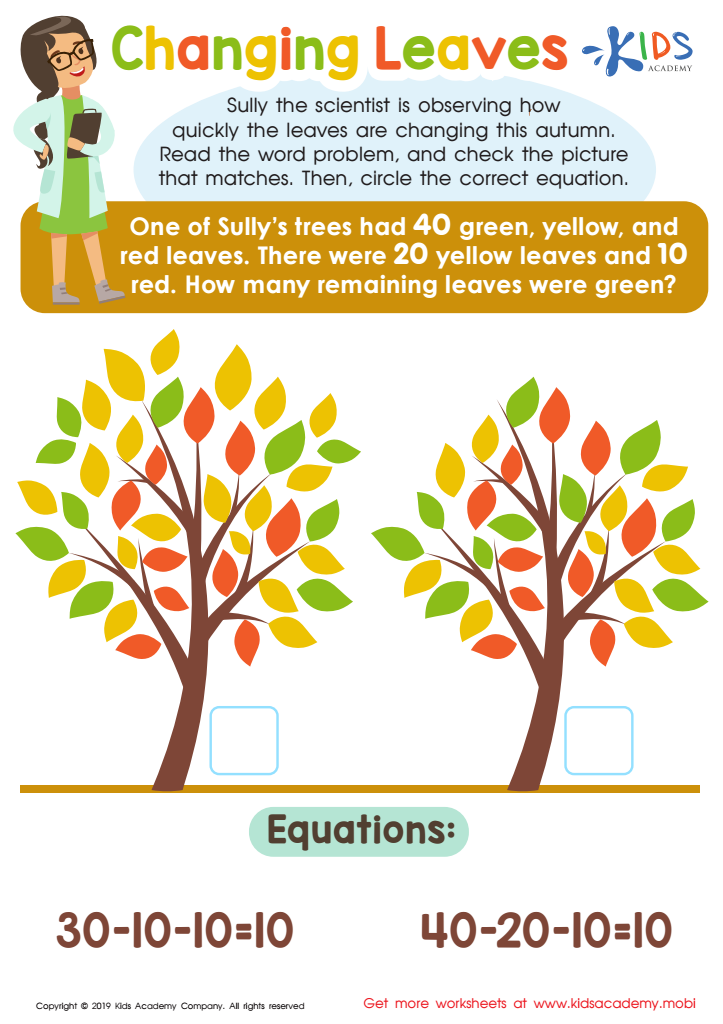

Changing Leaves Worksheet


Counting Seedlings Worksheet
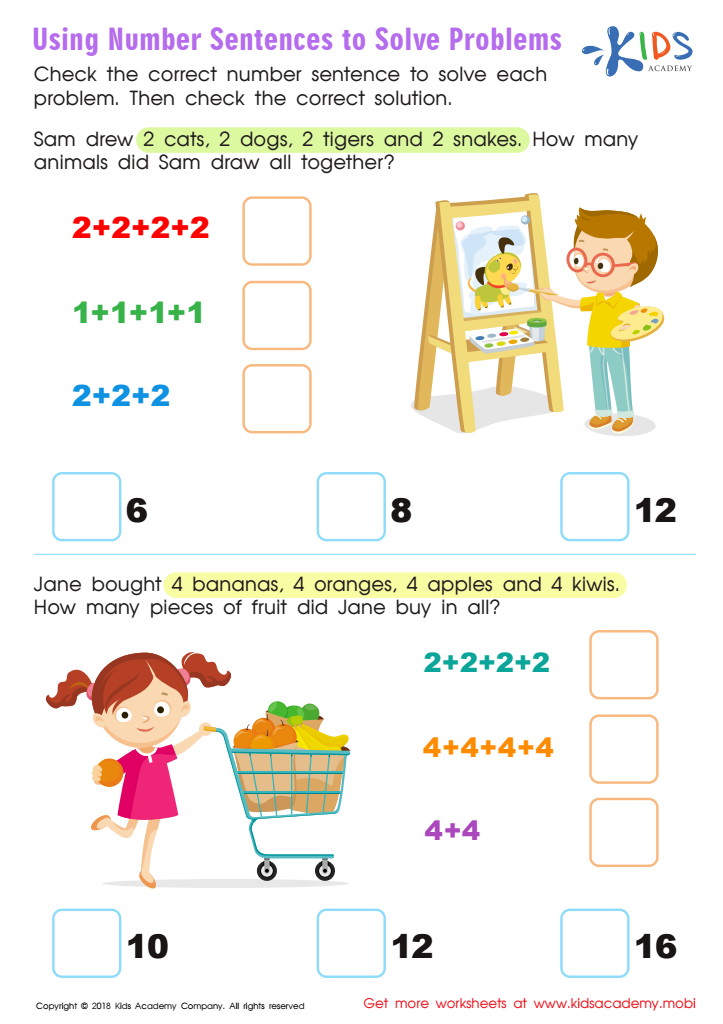

Using Number Sentences to Solve Problems Worksheet
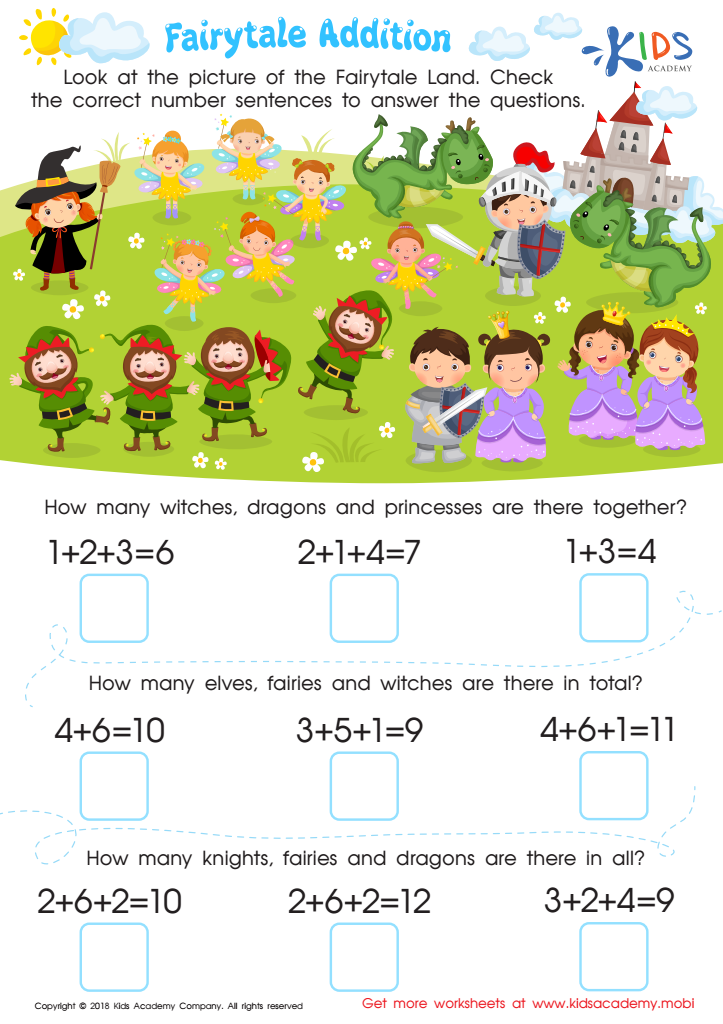

Fairytale Addition Worksheet
Easy two-step word problems are highly beneficial for young children, ages 4-7, and parents and teachers should prioritize them for several reasons. Firstly, such problems promote critical thinking and problem-solving skills. Early exposure to these skills aids in cognitive development and prepares youngsters for more complex mathematical concepts.
Additionally, two-step word problems enhance reading comprehension by requiring children to understand and interpret text in order to solve a mathematical problem. This integration of literacy and numeracy strengthens overall academic success.
Furthermore, engaging in these word problems can build a child’s confidence in their mathematical abilities. Success in solving these problems fosters a sense of accomplishment and can diminish anxiety related to math. This positive experience can encourage a lifelong love for the subject, setting a child up for future achievement.
Finally, two-step word problems are applicable to real-life situations, making learning relevant and practical. Children can learn to apply their mathematical skills to everyday tasks, such as cooking or shopping, thus strengthening their understanding and appreciation of math in the world around them.
Overall, prioritizing easy two-step word problems in early education supports holistic development, nurtures confidence, and instills practical skills that are vital for lifelong learning and success.
 Assign to My Students
Assign to My Students







